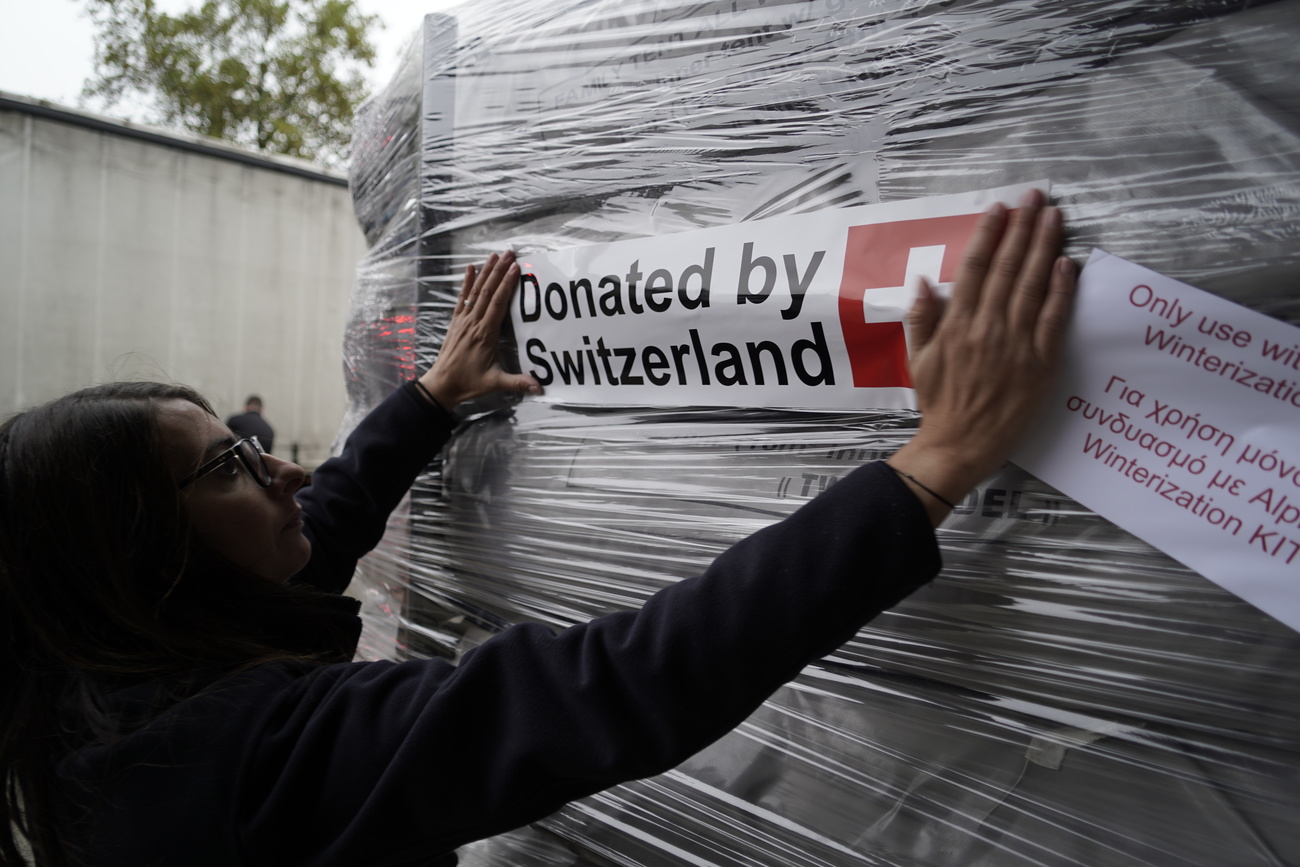Swiss budget cuts increase pressure on International Geneva

Switzerland has decided to cut funding to several international organisations based in Geneva, including UNAIDS and UNESCO. This comes as the United States has suspended its foreign aid, leading to a climate of uncertainty in Geneva.
“It’s a blow, and the timing is particularly bad with the suspension of US aid,” says Christine Stegling, deputy executive director at the policy, advocacy and knowledge branch of UNAIDS.
UNAIDS learnt at the end of January that Switzerland would cease its contributions to the organisation from 2025, meaning a loss of CHF3 million ($3.3 million).
“It will be difficult to compensate for this loss, as the entire development aid sector is going through a systemic shock,” Stegling says. The Swiss Agency for Development and Cooperation (SDC) will also be cutting their contributions to UNESCO and the Global Partnership for Education.
These cuts follow the Swiss parliament’s decision last December to slash CHF110 million from the 2025 budget and CHF321 million from planned 2026-2028 development cooperation funding.
Other major Swiss contribution cuts are planned, notably to UNICEF (-25%), the United Nations Development Programme (-20%) and UN Women, the United Nations body for gender equality and empowerment of women (-20%). Switzerland will also end its development programmes in Albania, Bangladesh and Zambia by the end of 2028.

More
Foreign aid cuts: where does Switzerland stand?
They are part of a vast savings programme the federal government announced last autumn, aimed particularly at boosting funding for the armed forces. Additional funds will be allocated to the reconstruction of Ukraine (CHF1.5 billion) and international climate financing (CHF1.6 billion).
The Trump squeeze
In Geneva, these announcements are stoking a climate of uncertainty already fuelled by US President Donald Trump’s three-month suspension of foreign aid pending review. They come at a time when the United Nations is already facing an unprecedented cash crisis.
Like many Geneva-based organizations, UNAIDS is heavily dependent on US contributions, which account for 40% of its budget.
“We need to prepare now for drastic cost-cutting measures, and adapt our activities to potentially reduced funding,” Stegling says. “In all the countries where we operate, HIV clinics strapped for reserves are being forced to close their doors pending a US decision. Those who pay the highest price will be the most vulnerable people.”

More
Proposed Swiss cuts to international aid mean less for the needy
Risk of surging HIV infections
Stegling welcomes the US waiver for life-saving treatments, which include testing, but is concerned about the pause in prevention efforts, including condom distribution and PrEP preventive treatment (pre-exposure prophylaxis for people at high-risk of acquiring HIV).
“This freeze on US funding will inevitably lead to an increase in HIV infections,” she says.
The Swiss federal authorities justify their scrapping of UNAIDS contributions by saying they want to concentrate on fighting HIV through the World Health Organization (WHO) and the Geneva-based Global Fund to Fight AIDS, Tuberculosis and Malaria.
Stegling finds this argument hard to swallow. “We are the only ones working directly in-country, involving the communities concerned. The Global Fund and PEPFAR [US anti-HIV programme] depend on the data we collect on the ground,” she says.
“We know how to eradicate HIV by 2030. To pull out now would be irresponsible. We risk losing 30 years of progress. This infectious disease affects global and national health security. We can’t put a pandemic on pause.”
Education and culture also in the firing line
Education and culture are also affected by these cuts. From 2025, the Swiss Agency for Development and Cooperation (SDC) will stop its contributions to the Global Partnership for Education and UNESCO. It will also cut its contributions to the UN children’s fund UNICEF by a quarter.
The SDC has announced its intention to “progressively abandon actions in the field of basic education” in favour of vocational training and education in emergency contexts. Asked for a response on this, UNICEF did not reply to our questions.
For UNESCO, this announcement came just a few days before US President Donald Trump signed an executive order to pull the US out of the Human Rights Council and “review American involvement in UNESCO”.

More
How Trump’s orders could affect Switzerland
Trump had already slammed the door during his first term on this UN agency dedicated to education, science and culture. So is UNESCO now worried by the new American move, possibly leading to more disengagement?
The UNESCO spokesperson sounds reassuring. “The financial commitment of our multilateral and private partners has steadily increased,” he says. “And these contributions have doubled over the past eight years.”
As for the Swiss cuts, he stresses that only so-called “voluntary” contributions are affected, i.e. only a portion of the funds allocated by Switzerland. “These cuts will have an impact on some of our operations, notably at the Geneva-based International Bureau of Education. We will continue to mobilise other partners to minimise the impact.”
In Geneva, the countdown is on. At the end of 2024, experts were already warning that Geneva risks losing its international influence. The local authorities were quick to react. On February 12, the Geneva cantonal government announced emergency support of CHF10 million for non-governmental organisationsExternal link. Geneva’s international community is now holding its breath, waiting for the American assessment expected by the end of April.
Edited by Pauline Turuban. Adapted from French by Julia Crawford/ts

In compliance with the JTI standards
More: SWI swissinfo.ch certified by the Journalism Trust Initiative









You can find an overview of ongoing debates with our journalists here . Please join us!
If you want to start a conversation about a topic raised in this article or want to report factual errors, email us at english@swissinfo.ch.